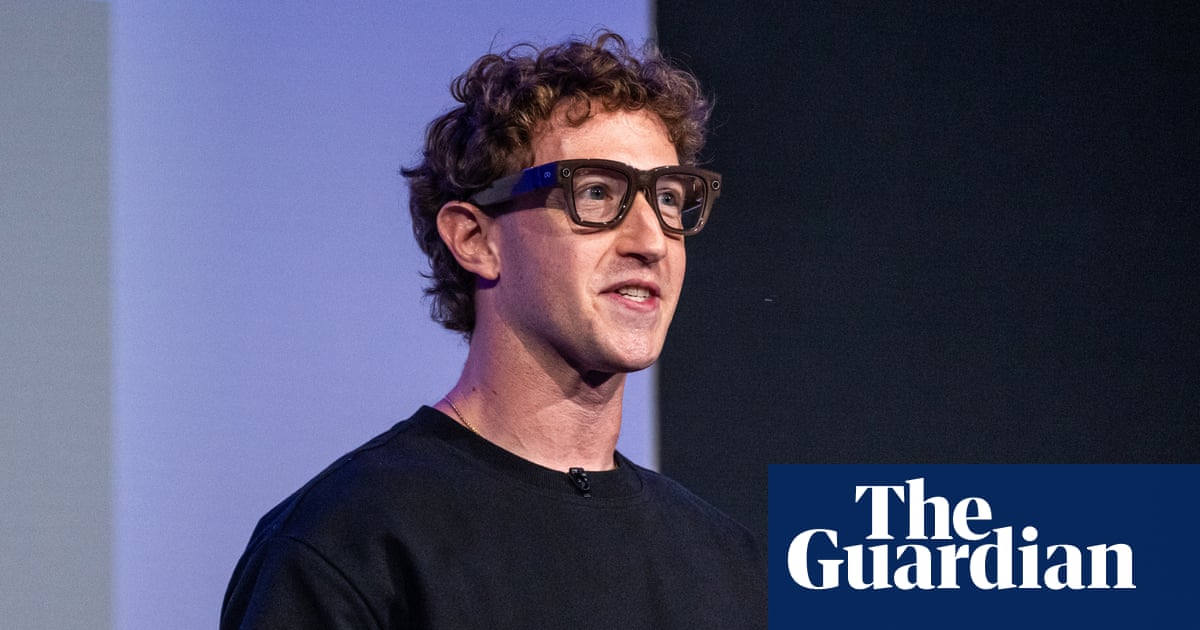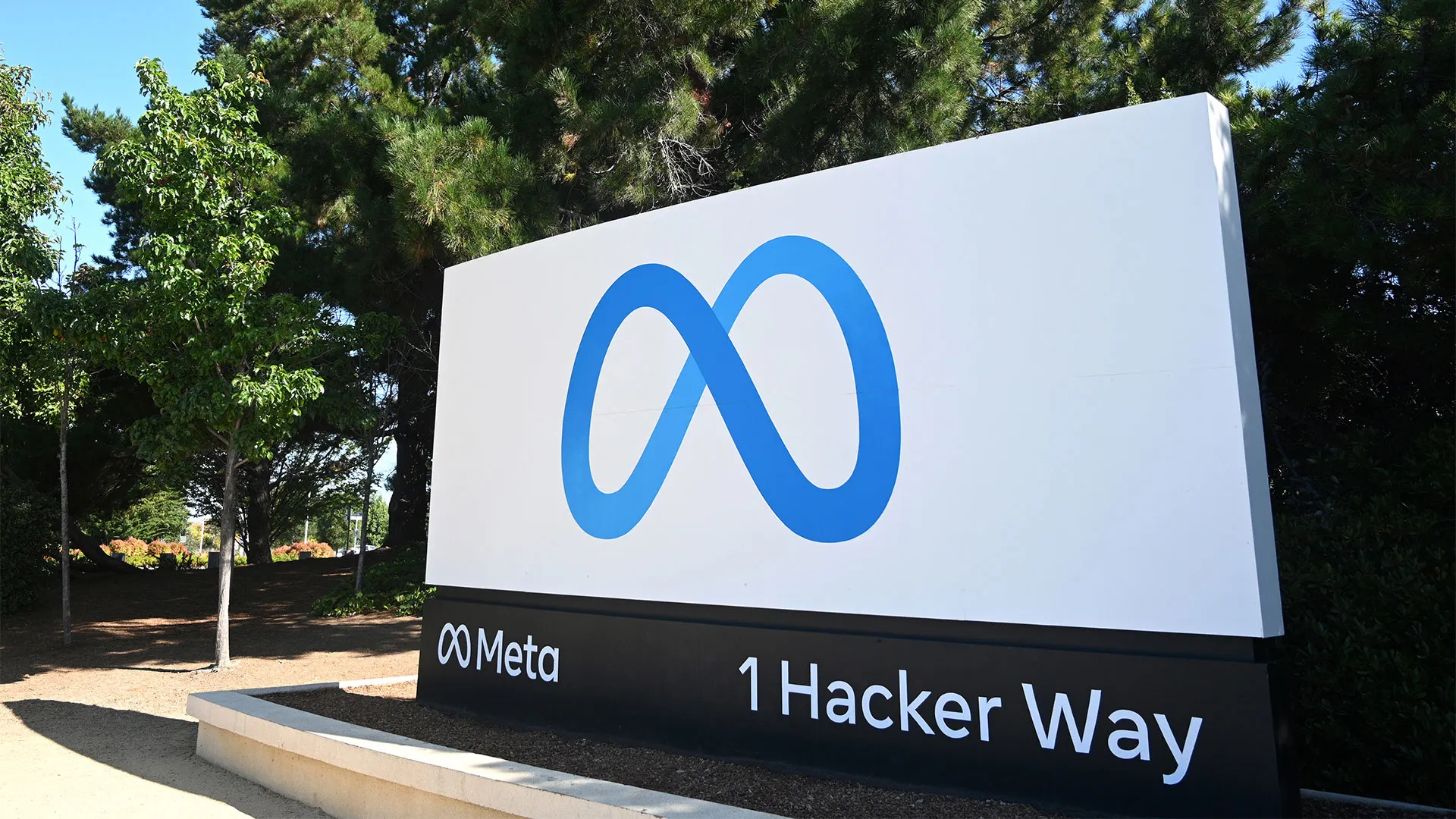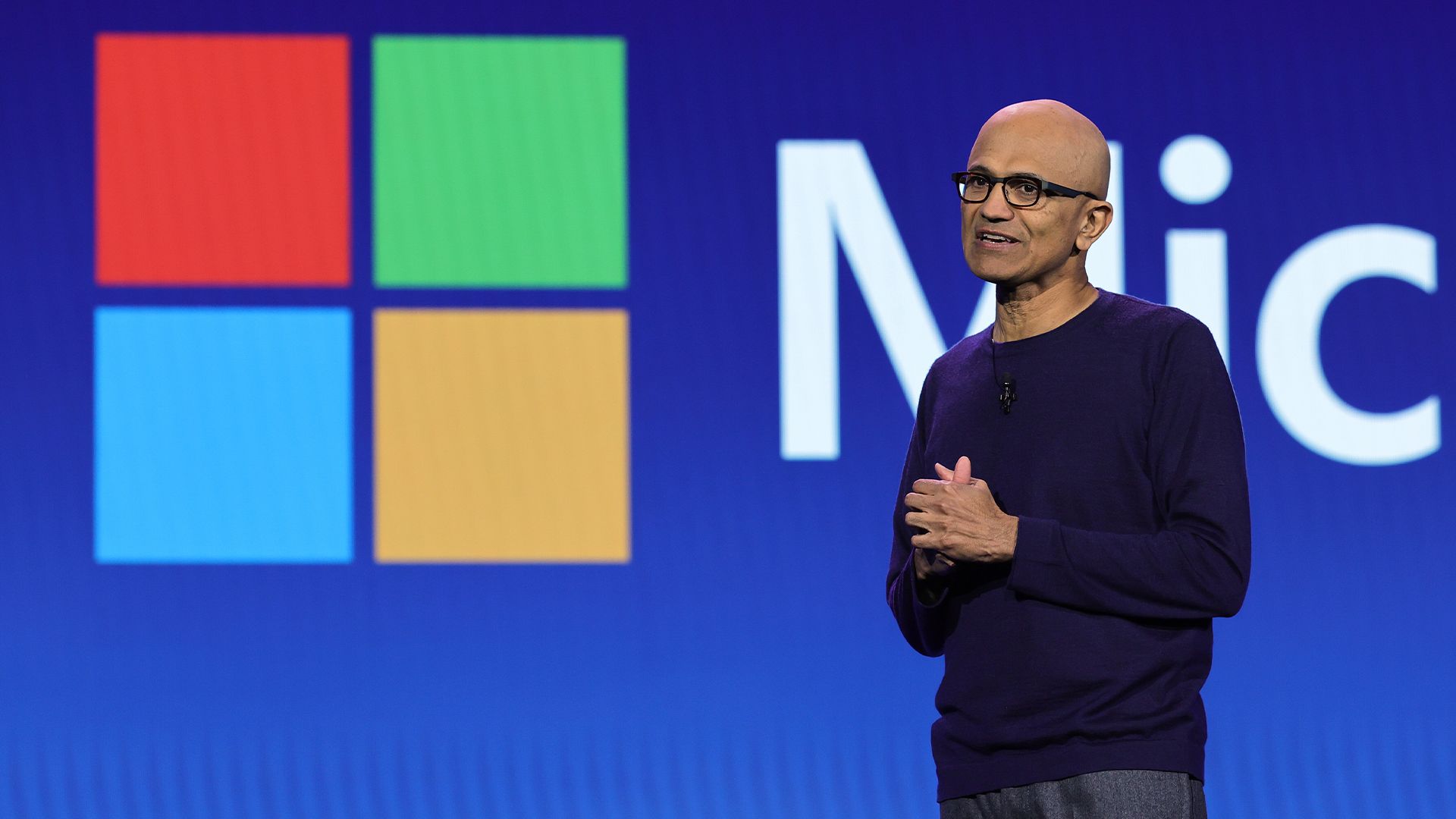#ai-investment
#ai-investment
[ follow ]
#data-centers #openai #nvidia #meta #generative-ai #cloud-computing #capital-expenditures #microsoft #us-economy
fromBusiness Insider
10 hours agoBig Tech's huge AI spend creates 'a little bit of a prisoner's dilemma,' says a hedge fund exec
The race to dominate artificial intelligence has turned into an expensive competition that traps Big Tech companies into "a little bit of a prisoner's dilemma," a top hedge-fund executive said. "You have to invest in it because your peers are investing in it, and so if you're left behind, you're not going to have the stronger competitive position to it," said Tony Yoseloff, the chief investment officer at hedge fund Davidson Kempner Capital Management, which manages about $37 billion.
Business
Artificial intelligence
fromBusiness Insider
19 hours agoA 17-year-old earned $72,000 after investing his e-commerce profits into stocks. Here's why he bet on the tech industry.
Global AI market may reach $4.8 trillion by 2033, creating large profit opportunities for AI-focused companies and early investors.
fromBoardroom
6 days agoFrom Comments to Conversations: How Manychat Became a Creator Essential - Boardroom
The platform simplifies social media engagement by automating conversations through Instagram, Facebook, and WhatsApp. What started as a messenger automation startup has evolved into a global community of over one million users across 170 countries, backed by a team of more than 350 employees. In April 2025, Manychat announced it had raised $140 million in growth capital led by Summit Partners to accelerate AI innovation, global expansion, and product development. This milestone underscores the company's accelerating momentum and growing influence in the creator economy.
Social media marketing
Artificial intelligence
fromFortune
1 day agoFrom retail to tech, here are the 10 corporations that recently announced mass layoffs | Fortune
Businesses are largely frozen on hiring while reallocating funds to AI and infrastructure, prompting layoffs and heightened worker uncertainty amid tariffs and a government shutdown.
Artificial intelligence
fromBusiness Insider
1 day agoMeta earnings recap: Stock tumbles 9% after big tax charge and plans to spend even more on AI
Meta will significantly increase AI infrastructure spending and 2026 capital expenditures, betting that larger compute investments will be profitable despite a $15.9 billion tax charge.
Artificial intelligence
fromFortune
1 day agoPowell says that, unlike the dotcom boom, AI spending isn't a bubble: 'I won't go into particular names, but they actually have earnings' | Fortune
AI-driven corporate investment in data centers and semiconductors is a productivity-led, sustainable engine of U.S. growth, distinct from the dotcom bubble because firms have earnings and business models.
fromFortune
2 days agoPowell gave traders a green light to double down on AI-but the markets punished Meta and Microsoft anyway | Fortune
The broad index of large-cap companies in the S&P 500 closed flat, but the tech-heavy Nasdaq 100 rose 0.55%. Tech stocks were led by Nvidia, which was up 3%, and now has a market cap of more than $5 trillion. (Its stock is down 0.7% premarket this morning, suggesting that some traders are taking their overnight gains.) To put that in perspective, Nvidia's market cap is bigger than the GDP of every G7 country except the U.S. and Japan.
Business
fromBusiness Insider
3 days agoSee Big Tech's massive AI spending spike - and their plans to go bigger next year
Big Tech's AI gold rush isn't slowing down- it's getting more expensive. Amazon, Google, Meta, and Microsoft all opened their wallets wider than ever this quarter, logging record-breaking capital expenditures on AI chips, servers, and data centers. Microsoft was the top spender at nearly $35 billion, narrowly beating Amazon. Meta CEO Mark Zuckerberg said the company could increase itslong-term asset spending, or capital expenditure (capex), by as much as 24% next year. Each company said it planned to spend even more on capex going forward.
Artificial intelligence
fromwww.aljazeera.com
1 week agoWhat does the US-UK AI deal mean for your data?
Is the UK truly becoming an AI hub as US tech giants pour in billions? A multibillion-dollar deal is being hailed as proof that Britain is becoming a global hub for artificial intelligence, with major United States tech companies investing heavily. But the reality is a little less straightforward. On today's show, we ask: how much power, and how much of your personal data, are you willing to hand over to tech companies?
Artificial intelligence
Artificial intelligence
fromIT Pro
1 week agoUK firms are pouring money into AI, but they won't see a return on investment unless they address these key issues
UK businesses plan to increase AI investment by 40% over two years but fragmented, department-led, and ad-hoc programs risk limiting ROI and full value realization.
Artificial intelligence
fromFortune
2 weeks agoDon't fear the AI bubble, it's about to unlock an $8 trillion opportunity, Goldman Sachs says | Fortune
Wall Street analysts view the AI investment boom as sustainable due to expected productivity gains and continued capital spending on data centers and chips.
fromwww.theguardian.com
3 weeks agoRishi Sunak takes advisory roles with Microsoft and AI firm Anthropic
Rishi Sunak has been appointed as a senior adviser by the US technology companies Microsoft and Anthropic. The former British prime minister's pair of new jobs emerged on Thursday in letters published by Westminster's office of the Advisory Committee on Business Appointments (Acoba). They add to his roles as a senior adviser to Goldman Sachs International, the investment bank, and speechmaker to investment firms including Bain Capital and Makena Capital in the US, which have netted him over 150,000 a talk.
UK politics
Artificial intelligence
fromFortune
3 weeks agoBank of England on AI mania: 'stretched' stock valuations 'comparable to the peak of the dot com bubble' | Fortune
Bank regulators and executives say AI-driven equity valuations, especially in AI-focused technology stocks, appear stretched and vulnerable despite major investments and large corporate deals.
fromBusiness Insider
3 weeks agoJamie Dimon says JPMorgan's $2 billion AI investment is already paying off
Dimon said in an interview with Bloomberg TV on Tuesday that the bank spends about $2 billion a year on AI and is seeing about the same amount in direct benefits. "We have shown that for $2 billion of expense, we have about $2 billion of benefit," Dimon said. "We did this, we reduced headcount, we saved this time and money."
Business
fromSFGATE
3 weeks ago'Circular' mega-deals by Bay Area tech giants are raising eyebrows
The deals are so vast that they defy comprehension - the Financial Times put the company's recent commitments at north of $1 trillion - and they're making public companies' stock prices jump. Stock analysts dub some of these agreements "circular," because investment money is flowing between companies that also buy from or sell to one another. The worry then is that such deals might prop up or overhype a bad business.
Artificial intelligence
Artificial intelligence
fromFortune
1 month agoGoldman Sachs' David Solomon says he's 'not smart enough to know' if AI is a bubble, but 'it's not different' from other market manias | Fortune
AI-driven investment resembles past sector booms: abundant capital will produce many unprofitable bets, and equity markets may see a near-term drawdown.
Science
fromFortune
1 month agoNuclear fusion, the 'holy grail' of power, was always 30 years away-now it's a matter of when, not if, fusion comes online to power AI | Fortune
Fusion ignition breakthroughs and growing commercial efforts aim to deliver consistent, clean, near‑limitless electricity to the grid within the coming decade.
fromFuturism
1 month agoAI Poised to Gut Your Retirement Fund, Analysts Warn
As the Washington Post observed in newreporting on the AI bubble, speculative investment into AI development is now the dominant force driving the US economy. By the numbers, the US GDP has grown at a rate of 1.6 percent so far this year, on pace to hit the 2.8 percent growth it achieved in 2024. That's all well and good on paper, except for the troubling fact that two-thirds of that growth came from AI, per WaPo 's analysis.
Artificial intelligence
Artificial intelligence
fromFortune
1 month agoAn MIT roboticist who cofounded Roomba maker iRobot says investors pouring billions into humanoid robots is a mistake: 'pure fantasy thinking' | Fortune
Humanoid robots lack the tactile dexterity and coordination needed, making large investments unlikely to yield general-purpose humanoid assistants.
fromFuturism
1 month agoFormer Facebook Exec Warns AI Industry Is Entirely Built on "Vibes"
The deluge of speculative tech investments unleashed by artificial intelligence is unparalleled in history. Never before has a technology which promises so much - but currentlydoes so little - managed to capture enough funding to threaten the US economy should it fail. With that kind of cash on the line, one would assume thattech startups have done their homework on the complicated reality of AI development before courting untold millions of dollars from overzealous investors - that's sort of their job, after all.
Artificial intelligence
Intellectual property law
fromIPWatchdog.com | Patents & Intellectual Property Law
1 month agoOther Barks & Bites for Friday, September 19: John Squires Confirmed as USPTO Director; Divided Fifth Circuit Affirms Injunction on Noncompete Clauses; EPO Reports Threefold Increase in Digital Agriculture Tech Since 2000
John Squires confirmed as USPTO Director amid notable legal, patent office, and technology developments including fair-use rulings, EPO agri-tech growth, Nvidia-Intel investment, and PTAB scrutiny.
fromThe Motley Fool
1 month agoHere's Why Meta Platforms Should Trade at a Lower Multiple Than the Rest of the "Magnificent Seven" | The Motley Fool
Meta Platforms financial results have been impressive in the first half of the year. Its strong growth has been fueled by robust advertising demand and an engaged user base across its social media apps. The company, which owns Facebook, Instagram, WhatsApp, Messenger, and Threads, is making significant investments in artificial intelligence (AI) and innovative ad formats -- all while revenue and earnings are soaring. No wonder the Street has been buying up the stock.
Social media marketing
US politics
fromExchangewire
1 month agoDigest: Trump Hails TikTok Deal; Amazon Expands Ad Integration with SiriusXM; UK & US Seal $42bn Tech Pact
TikTok may stay in the US under new American ownership while China could retain algorithm control; Amazon expands SiriusXM programmatic ads and the UK-US commit £31bn to tech investment.
Business
fromFortune
1 month agoJerome Powell on signs of an AI bubble and an economy leaning too hard on the rich: 'Unusually large amounts of economic activity' | Fortune
AI-driven capital spending concentrates growth and benefits wealthy households and mega-cap firms, creating a K-shaped recovery and uneven economic composition.
fromComputerWeekly.com
1 month agoUK Tech Prosperity Deal: Business spend in AI set to grow | Computer Weekly
"It's encouraging to see an intent to invest from UK businesses, with many turning that into action," said Matt Hammerstein, chief executive of Barclays UK Corporate Banking. "Against a backdrop of global uncertainty, there's more to do to build confidence in the UK as a place for businesses to grow and scale. "Our research suggests that AI is becoming a key tool to drive innovation, encourage investment and upskilling to lift productivity, and build confidence in the UK as a global business hub."
Artificial intelligence
Artificial intelligence
fromComputerWeekly.com
1 month agoMicrosoft to invest $30bn in expanding its operations and AI infrastructure footprint in UK | Computer Weekly
Microsoft will invest $30bn in the UK by 2028 to expand AI and cloud datacentres, build a supercomputer, and support operations and jobs.
Artificial intelligence
fromExchangewire
1 month agoDigest: Magnite Sues Google; Google to Invest 5bn in UK AI; Australia Won't Implement Accuracy Threshold for Social Ban Age-Check Tech - ExchangeWire.com
Google faces a US antitrust lawsuit over ad-tech practices while investing £5bn in UK AI and governments issue guidance on under-16 social-media bans.
fromTNW | Ecosystems
1 month agoEurope's AI boom is leaving femtech behind
In 2021, global femtech investment peaked at before plunging to just €1.1bn the next year, amid a tech funding apocalypse and capital making a headlong dash towards AI. Several factors contributed to this decline - broader market conditions, withering investor risk appetite, and natural sector maturation. But the surge in AI funding coinciding with a plunge in femtech investment highlights serious issues with capital allocation.
Venture
[ Load more ]



































